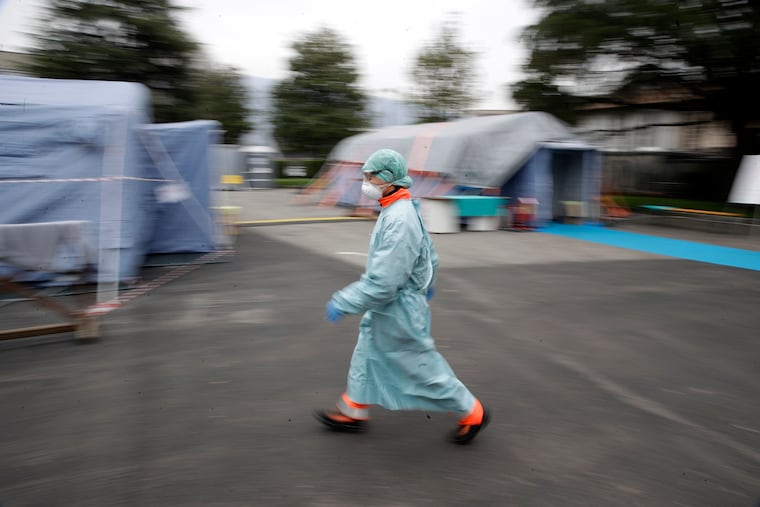Cardiologist’s coronavirus call to action: Stay home, boost testing, and flatten the curve l Opinion
Without immediate and drastic action, we will face Italy's crisis: Doctors and nurses forced to make impossible ethical choices, deciding who will get care and who will die.

With any great threat to the status quo, there is a certain cognitive dissonance that makes it difficult to comprehend the magnitude of the impending calamity. The novel coronavirus is no exception.
While we are all vaguely aware of the potential challenge brought by the combination of a rapidly expanding disease prevalence, plus the coming shortage of intensive care beds, it is still hard to fathom exactly what that means.
What happens when a nationwide network of 46,800 to 64,000 medical intensive care unit beds is suddenly faced with 200,000 critically ill patients?
For better or for worse, we have an answer. What happens is what’s happening now in Italy. The system is completely overrun, there is a massive shortage of critical care equipment, and doctors and nurses are forced to make impossible ethical choices, deciding who will get care and who will die.
In this country, we are about two weeks behind the Italian timeline, and, based on the current rate of increase, we can expect cases of the coronavirus to increase by a factor of 10 just about every 10 days.
That means that on March 24, we can expect 27,000 cases, on April 3, we can expect 270,000 cases, and, if nothing in our containment and mitigation plan changes, we can expect more than three million cases by Tax Day, April 15.
Does it have to be that way? No, through rapid action, there is an opportunity to reduce the growth in the number of cases, to flatten the curve, and to alleviate the strain on the health-care system.
In some municipalities and states, there have been reasonable attempts to increase social distancing to slow down the spread of the coronavirus. While these attempts are well-intentioned, they are far from sufficient. France and Spain have announced that everyone with a nonessential job should stay in their home, effective now, and that all nonessential stores will be closed.
We are perhaps a day or two behind these countries in our epidemiological timeline, but there is no reason that we should be behind them in our own attempt at containment. Although it’s quite clear that we will continue to have limited leadership from the White House, local and state government officials have the power to follow the example of Spain and France within their own municipalities. Gov. Tom Wolf took the brave step of closing Montgomery County, but the time to expand that to the whole state is now.
Every day that goes by without a dramatic response to this existential threat to our medical system is a wasted day. The movement toward social isolation needs to accelerate. Closing schools is a start, but it’s time to shut down all nonessential brick-and-mortar commerce.
And what do we do with those who are already sick? We need to set up testing stations in large parking lots, hotels need to be repurposed to house those infected, and hospitals need to be emptied of all nonemergent cases.
Wolf should convene a task force that includes critical government officials, industry leaders, and health-care experts from across the state, and this group should work around the clock to develop a plan to slow this virus down. There is no single solution to this unimaginable problem, but waiting to act is not an option.
David J. Goldberg is an associate professor of pediatrics in the division of cardiology at the Children’s Hospital of Philadelphia.